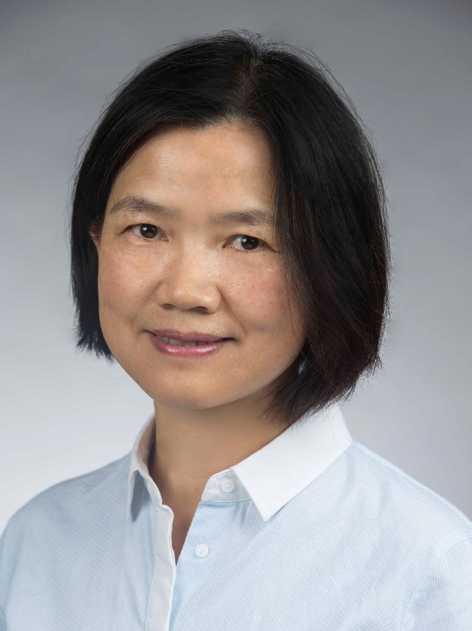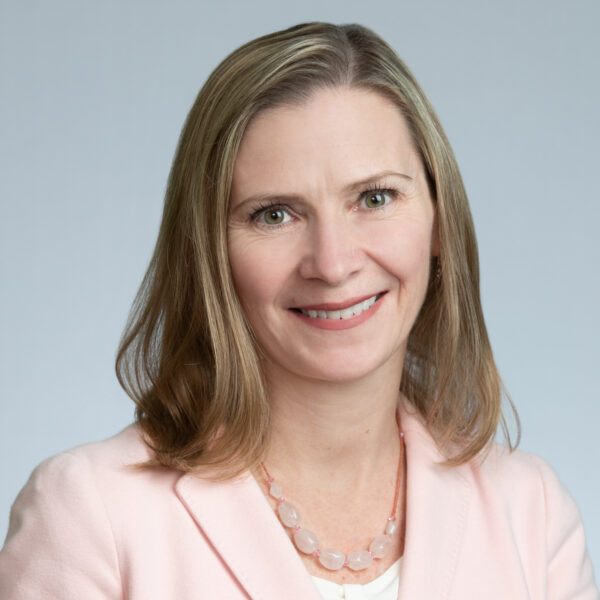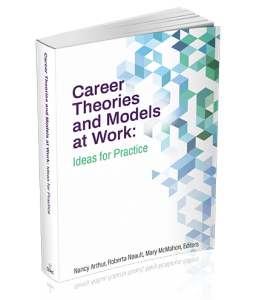This free webinar series offer the opportunity to further explore the career theories and models compiled in CERIC’s book Career Theories and Models at Work: Ideas for Practice. Webinars are led by the contributing authors to the book. More webinars (English and French) presented by the authors of the book will be added to the series soon!
Overview
Uncertainty in the future work environment is the new norm for a majority of people in the current social and economic context. Finding an occupational fit, fostering aspiration and motivation, learning decision-making skills, and developing adaptability are all recommendations to deal with the challenge; however, if individuals’ personal and contextual factors are not adequately taken into consideration, these great ideas might fail. Without ecological validity in career interventions, we are unable to help people achieve their optimal potential. The goal of ecological counselling is to help clients find concordance, or positive accommodation between themselves and their environment in all of their life aspects.
Why You Should Attend
Webinar Learnings:
- Broaden understanding of interaction of individuals and ecosystem including family, school, work setting, and socioeconomic and cultural context
- Use ecological assessment to sort out resources and barriers for clients at each level of the ecological system
- Identify personally meaningful and ecologically valid goals for individual career development through clarification of role and life purpose
- Optimize person-environment dynamic development by integrating roles, needs, resources and barriers in each layer of their ecosystem
- Facilitate empowerment and resilience-building of clients through a collaborative process with clients

Mei Tang, PhD, LPC, Professor, Counselling Program at the University of Cincinnati, US. She has served in various roles in professional organizations for counselling and career development for over 20 years. Her teaching and research focus includes multicultural issues in counselling, career development of minorities, cultural identity and acculturation, counsellor education and supervision, assessment and evaluation, and application of ecological counselling.
Mei Tang is also one of the authors of the Career Theories and Models at Work: Ideas for Practice book, Chapter 38 – Ecological Career Counselling Model: Enhancing Accordance of Person and Environment for a Meaningful Life.
Overview
The most effective learning activities are those designed with the development level of the learner in mind. It is expected that education curricula in academic subject areas, such as math, reading and science, are created and implemented in such a way that they are well matched to the cognitive abilities of the students in the classroom. The same principle should be applied to the area of career development. The Conceptions of Career Choice and Attainment (CCCA) model provides a six-level framework from which we can understand the way children reason about career-related processes, and how this reasoning changes over time.
Why You Should Attend
Webinar Learnings:
- The importance of considering cognitive developmental level when designing career education programs for children and youth
- The key features of the CCCA model
- The nature of career reasoning demonstrated by students in each of the 6 CCCA levels
- How to align their career programming to meet students’ career development needs

Kimberly A.S. Howard, is an Associate Professor at Boston University, where she serves as training director of the Counseling Psychology PhD program. She is a Fellow of the American Psychological Association (APA) Society of Counseling Psychology and a member of the APA Coalition for Psychology in Schools and Education.
Kimberly A.S. Howard is also one of the authors of the Career Theories and Models at Work: Ideas for Practice book, Chapter 16 – Children’s Reasoning about Career Development: The Conceptions of Career Choice and Attainment Model
Overview
In this free webinar, Tom Luken will discuss why he thinks career theory and practice need innovation and why Acceptance and Commitment Therapy (ACT) offers promising ingredients for this.
Why You Should Attend
The first part of the webinar will be devoted to some conundrums in the context of career development. One concerns the need for self-direction, while developmental and brain research suggests that this is out of reach for most adolescents and many adults. Another conundrum concerns pitfalls of conscious thinking and – in many instances – a superiority of “unconscious thinking.” It will be concluded that many traditional career guidance theories and practices are based on assumptions that are increasingly losing credibility.
In the second part of the webinar, some basic ACT views, processes and instruments will be discussed. The contents will be illustrated by some practical exercises and experiences, derived from a toolkit, developed by Tom and Albert de Folter.
Webinar Learnings:
- Reflection on some fundamental problems in career theory and practice
- A new understanding of “self-direction”
- Knowing the basics of Acceptance and Commitment Therapy (ACT)
- Ideas for innovating career theory and practice
- Stimulation of finding one’s own ways to apply these ideas

Tom Luken, is a work and organizational psychologist, based in the Netherlands, with a lifelong focus on career development. He has worked as a counsellor, trainer, researcher, professor and editor-in-chief. Now retired, he is focusing on some fundamental questions concerning career development.
Tom Luken is also one of the authors of Career Theories and Models at Work: Ideas for Practice book, Chapter 19 – Acceptance and Commitment Therapy Fuels Innovation of Career Counselling.

CERIC’s book Career Theories and Models at Work: Ideas for Practice is an international collection of contemporary and emerging career development theories and models that aims to inform the practice of career development professionals around the globe. It is also intended to be used as a text for undergraduate and graduate career counselling courses.
- Contains 43 chapters on the theories and models that define the practice of career development today
- Contributors are 60 of the leading career researchers and practitioners from four continents and nine countries: Australia, Canada, England, Finland, India, the Netherlands, New Zealand, South Africa and the United States
- Featured authors include the original theorists and those who have adapted the work in unique ways to inform career development practice
-
